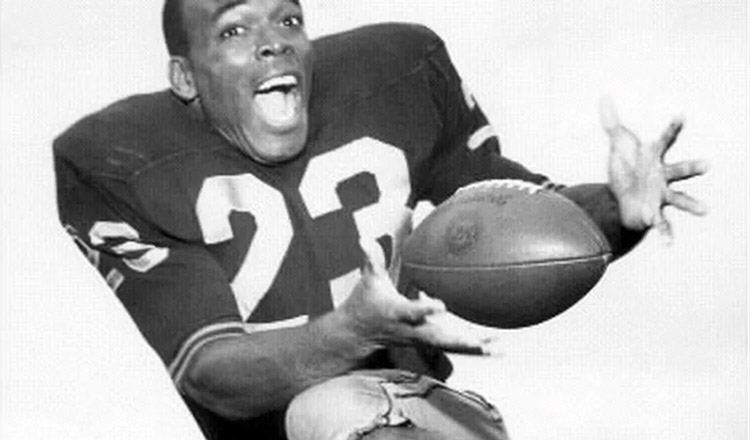The year was 1968. And Leroy Keyes remembers it well. For many reasons.
Tumult enveloped the nation. There was the assassination of Martin Luther King Jr. that set off riots in Chicago, Washington, DC, and other cities. Civil rights demonstrations also sparked fury across America, highlighted by a deadly protest in Orangeburg, South Carolina. At Columbia, a school official was held hostage as part of a protest again racists policies at the Ivy League institution.
It was against that backdrop of upheaval 50 years ago that Leroy Keyes (HHS’69) prepared to play his final season at Purdue. It was a season of individual glory and still resonates in West Lafayette. Keyes remembers it all well.
“We had good players,” Keyes said. “It was a special time. That 1968 season was one of the greatest I can recall. We had coaches who believed in the players and we had a head coach who commanded respect.”
Keyes was the best of a star-studded bunch on this fabulous 1968 squad that provided an exclamation point on the most glorious four-year run (1966–69) in school history. That season, cries of “Give the ball to Leroy” resonated at Ross-Ade Stadium.
Purdue fans never will forget 1968. The football program was two years removed from a Rose Bowl win and a season removed from a Big Ten Conference championship campaign in 1967 that saw Keyes lead the nation in scoring and finish No. 3 in the Heisman voting behind UCLA’s Gary Beban and USC’s OJ Simpson. Adding to the 1968 preseason hype: Purdue appeared on the cover of the Sports Illustrated college football preview issue as the No. 1 team in the nation.
“I was a marked man coming into the season,” Keyes said.
Keyes also was a man motivated to have an impact off the field, too, during those days of rage.
“I participated in a couple of sit-ins,” Keyes said. “Students at the time were upset with the Vietnam War and a lack of minority faculty on our campus. I was arrested at one protest, and a photo of me went across the wire. My uncle called and said he didn’t send me to Purdue to be a protester.
“Sometimes, you have to take a stand if you think something is wrong. I grew up in Newport News, Virginia. I knew what segregation was about. The students appreciated that one of the top football players would sit in on a demonstration with them.”
Upon graduation, Keyes was selected by the Philadelphia Eagles with the third overall pick of the 1969 NFL draft. He played for the Eagles from 1969 to 1972 and for the Kansas City Chiefs in 1973 before injuries curtailed his career.
A desegregation specialist for the Philadelphia school district for 16 years, Keyes returned to Purdue as running backs coach under Jim Colletto in 1995 and 1996. Keyes subsequently served as an administrative assistant for the football program under Joe Tiller from 1997 to 1999 and then a member of the John Purdue Club staff until his retirement in 2011.
Read the feature story on Leroy Keyes that ran in the Fall 2018 edition of Purdue Alumnus magazine, honoring the 50th anniversary of his senior season on the football team.

